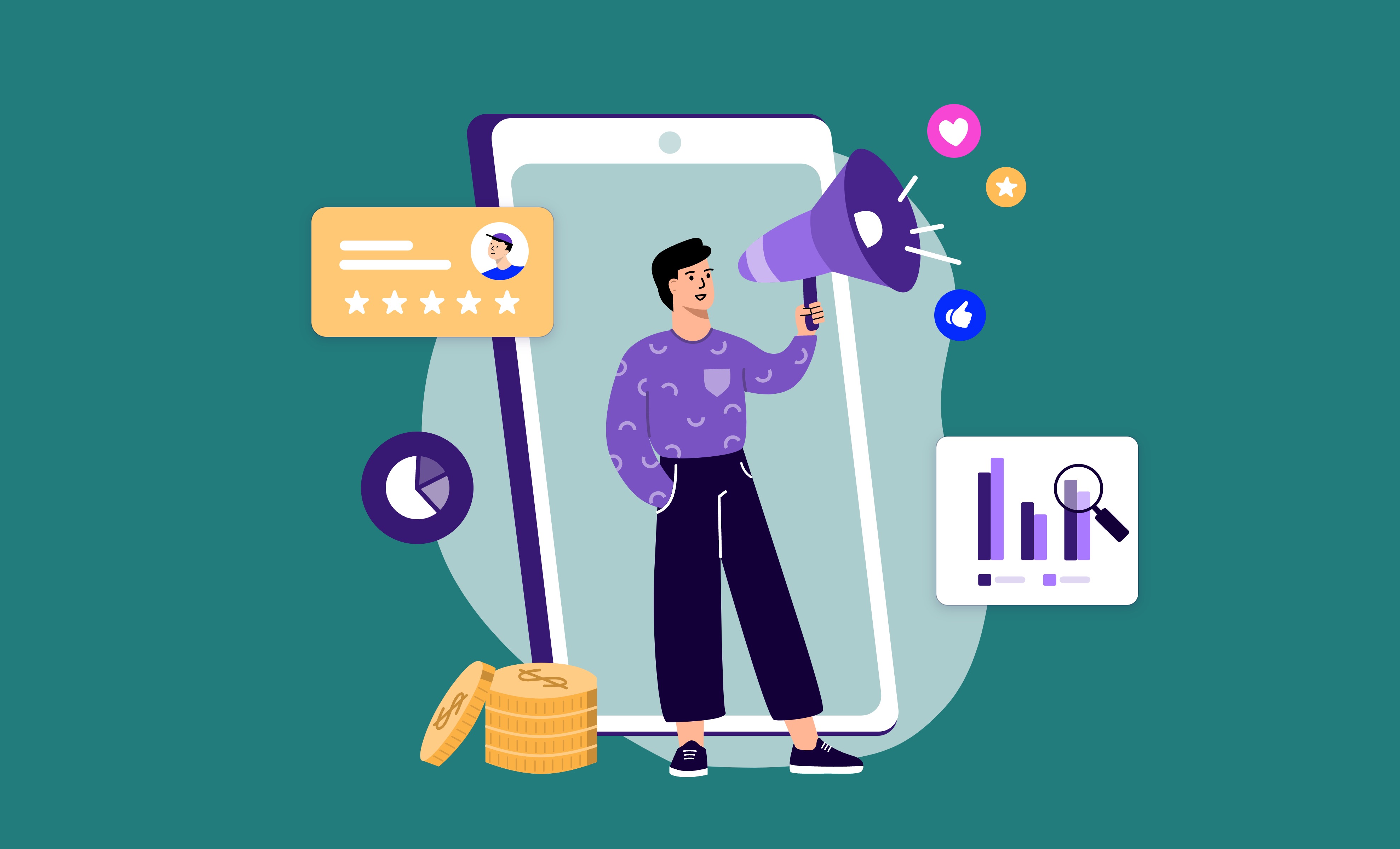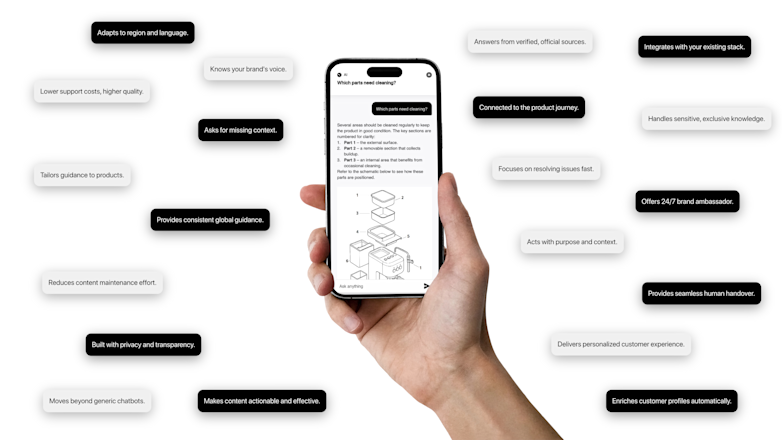
In today's world, convenience is king, and shopping in pajamas from the comfort of one's own home has become more appealing than visiting physical stores. In fact, more than 2.14 billion people, representing nearly 27% of the global population, now prefer to shop online. This number has surged by 40% over the past five years, resulting in massive sales.
However, despite this increase in sales, customer acquisition costs have risen while customer retention rates have declined. This is primarily due to the lack of a solid relationship between brands and consumers that could have been better nurtured in a physical setting.
The consumer, distribution, and manufacturing brand landscape has undergone significant changes in recent years, with e-commerce expanding rapidly while traditional brick-and-mortar retail sales have become unpredictable. Top brands are taking a proactive approach to generating demand for their products and services and are striving to establish direct relationships with their customers.
Brands have noticed a shift in customer engagement throughout the onboarding and sales funnel. Most consumers are eager to engage with the companies from which they purchase goods or services, and they expect the relationship to continue even after the sale is complete. Brands that view onboarding as a strategic opportunity are creating new channels and recognizing the importance of identifying more product owners for long-term engagement and more substantial returns.
When you sell through a website or offline store, your success as a brand depends on customers choosing you over your competitors. However, you miss out on the chance to really get to know your customers. To achieve long-term success and growth, it is essential to build strong customer relationships by creating a seamless and engaging onboarding experience. That's where Layerise comes in.
By understanding customer preferences, brands can offer personalized solutions that drive brand loyalty.
What is a customer relationship?
A customer relationship is like any other relationship where two people stay attached for a long time, depending on their feelings and behavior towards each other.
Customer relationship begins when a customer starts interacting with your company through acquisition channels. It includes every brand-consumer interaction, like customer support, technical support, and marketing communications.
As a brand, spending resources to find and understand your customers will help you learn more about your target market's needs, preferences, pain points, and decision-making processes. This helps to create effective and targeted marketing and sales plans, which can lead to better ROI.
By fostering a strong customer relationship, brands can improve product development efforts. Also, if you know your customers well, you can predict how they will buy, which can help you plan your inventory and save money. By getting to know your customers and connecting with them, you can build trust, make them more loyal to your brand, and get them to buy from you again. Knowing your customers can give you a big edge in the market by helping you better understand and serve your target audience.
Why it is important to build relationships with customers
Businesses looking for long-term success must focus on developing customer relationships, offering utmost satisfaction, and in return, getting a loyal customer base. Customers getting an opportunity to interact with brands helps develop strong connections based on trust. It makes consumers feel secure and connected with the brand leading to growth in customer retention and repeat purchase.
In fact, 80% of consumers say a brand's experience is as important as its products or services.
Today, having a unique product is an oddity in such a competitive market. What determines an organization's success or failure is how well it can meet the expectation of its end-user. This is in direct correlation to having a fruitful customer relationship.
9 benefits of building relationships with customers
Brands must focus on building customer relationships and understanding the potential negative impacts of ignoring customers. Listed below are the ten benefits of building good relationships with customers.
1. Reduce customer attrition
If you try to fill a bucket with several holes, will you ever be successful in filling it? No. Similarly, if you cannot retain existing customers in business, you'll sink, while others retaining customers see a double or triple growth rate.
Almost every business loses some consumers, but a poor repeat rate shows a certain gap between customer expectations and what is being provided.
Ironically, most companies spend a considerable amount of time and effort in building initial customer relationships but forego the bond as soon as the first sale is made. Doing such or, worse, not responding to customer queries after the sale will make you lose them forever, and there will be no opportunity to make repeat sales or create brand advocates.
The easiest way to become successful is to retain existing customers.
2. Influencing repurchase and loyalty
When you ensure a good customer relationship, they assure you of loyalty, referrals, word-of-mouth publicity, and repurchases. A recent study has shown that 72% of customers will tell six or more people about a good experience, promoting better ROI.
Keeping in touch with customers throughout their onboarding and after the sale is essential. A happy customer has a greater chance of returning to your brand and repurchasing, while an unhappy customer will find your competitors with better service in the future. A survey by Zendesk has shown that 80% of users will move to another brand after one bad encounter.
Any business focusing on customer relationships ends up making loyal customers. For example, Apple, the most successful brand in the world today, is standing straight for its loyal customer base.
3. Increase sales
Business experts believe communication with customers can increase sales even when the product and services are never mentioned. It's obvious in our real life that someone who converses regularly comes first in our minds when we need help. Similarly, if you are commuting with customers regularly, they will go first to you when they need a product or service related to your brand.
According to the book Marketing Metrics, businesses have a greater chance of making 60% - 70% sales to their existing customers while only a 5% - 20% sales with newer ones. Therefore, it's time to build solid relationships and hold back your current customers.
4. Spreading positive word of mouth
When a customer comes up with a problem and your team is ready to resolve them immediately, you make them satisfied and happy. A happy customer may recommend your brand to others or speak well about you on the internet. This serves excellent word-of-mouth marketing.
36% of users will share their experience, whether good or bad. Thus, it would help if you always tried to be in the good books of your consumers, so they always recommend you.
5. Save customer acquisition costs
Customer acquisition in a business is a significant investment, especially when you have several competitors in the market. It usually costs brands five times higher than retaining existing customers.
According to research, your 5% of the loyal user base can increase profits by 25% - 95%. It is best to focus on nurturing existing customers who are already spending on your brand than acquiring new customers and replacing them.
6. Build emotional attachment
Most of us don't feel connected to global online retailers like Amazon like we do to a local retailer in the neighborhood. A company looking for long-term success must build emotional connections and treat customers with care and respect. Personalization is a great way to forge a relationship and retain customers.
7. Gain valuable insights into customers
With regular consumer conversations, brands get to know their customers and what they expect from them, and the customers understand your brand. It is the best R&D department a company can have. These conversations reveal a customer's preferences, desires, and goals, which helps brands design future products and send out more personalized marketing messages to reach the right audience.
A company that ignores its customers after selling out a product misses out on valuable feedback. But sending surveys to them and tracking their preferences with the latest CRM tools can help brands know the change in demands and find the best way to promote new products.
8. Customers feel valued
No customer feels good about a company that doesn't work on developing a good bond. They love to engage with their brands while purchasing a product or after sales when they meet with an issue. When you hear them and respond immediately, they feel listened to and valued.
A study from PWC said 73% of people believe customer experience plays a vital role in purchasing decisions, and fostering engagement builds loyalty and encourages brand advocacy.
9. Strengthen your brand and gain a competitive edge
Successful entrepreneurs believe that the best brand is not the one focusing on making higher profits annually but providing the best customer service. People can pay more for a brand that treats them well.
The longer customers retain in the business, the greater value they offer during their lifetime relationship. Increased Customer Lifetime Value (CLV) will bring more revenue to the company.
How will Layerise help in building customer relationships?
At Layerise we've integrated customer experience expertise with CRM and marketing to enable you to establish long-lasting customer relationships that can lead to continuous revenue streams.
We also assist brands in customer discovery by offering insights into geographic, demographic, and behavioral aspects of your customers. Our system tracks customer satisfaction levels throughout their journey, providing you with a better understanding of your customers' behavior. Additionally, we leverage SMS marketing to deliver personalized and relevant SMS messages to customers, increasing conversion rates and boosting sales.
Learn how to collect valuable insights on your customers to sell even more.

How to Turn a New Obligation into a Growth with Layerise

A trusted, brand-safe AI assistant that knows your products, your customers and your content.





